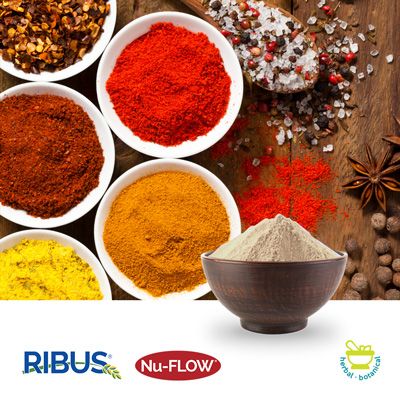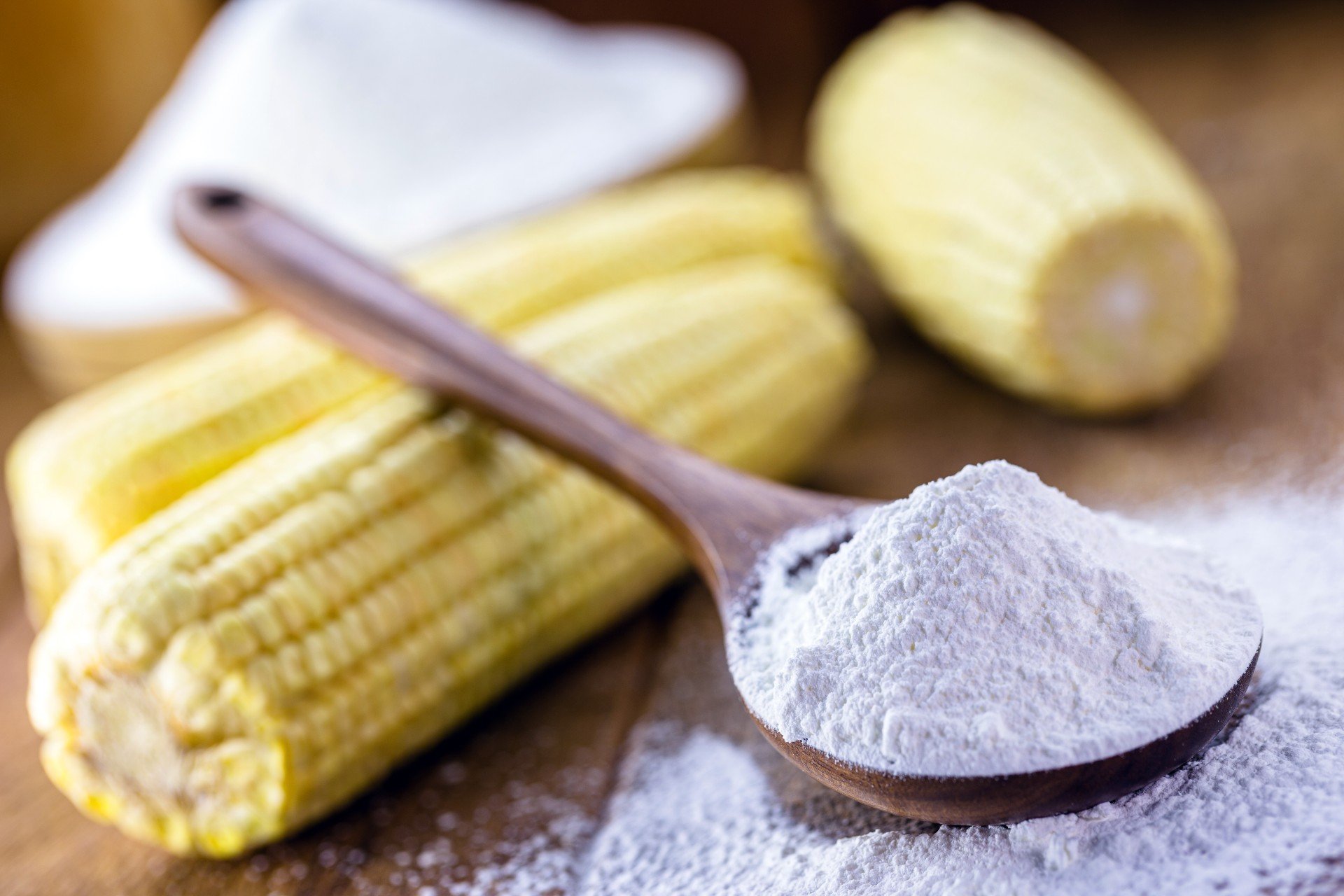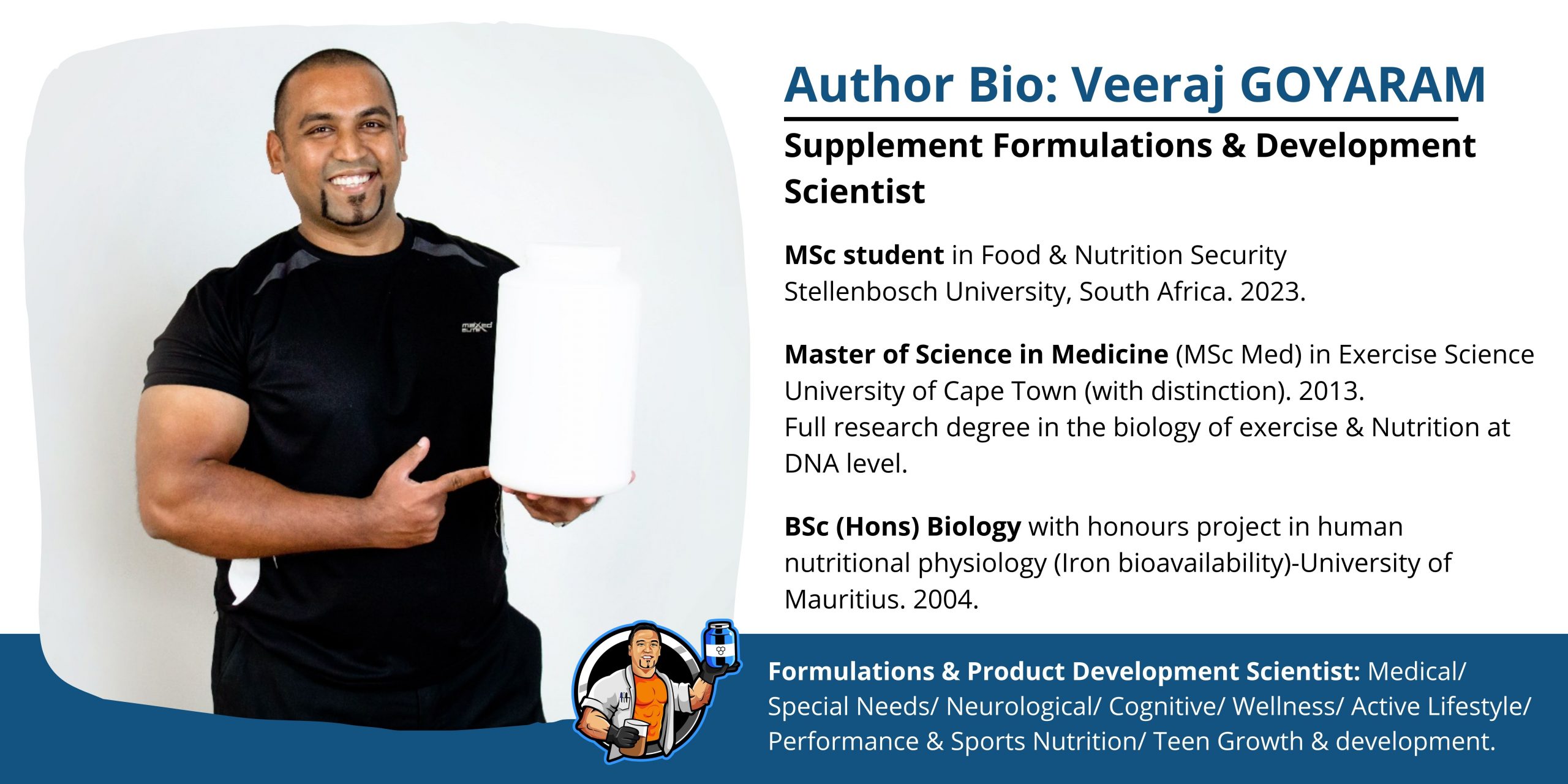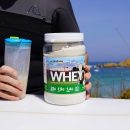When it comes to supplement powders, clumping can an occurence that hampers product quality, safety, and user experience.
This is especially true for products like preworkouts, sports drinks and acidic-type drink mixes. The latter contain ingredients that attract moisture easily like citrulline and fructose.
To combat this common issue, supplement developers use anticaking agents. The latter are ingredients that are specifically designed to prevent clumping and ensure that the powder remains free-flowing.
In this article, we will look at the various anticaking agents used in supplements. Anticaking agents can be synthetic (e.g. silica) or natural, like microcrystalline cellulose, rice hull powder, and the versatile maltodextrin.
Of course, in my formulations I have a preference for natural options and I also make it a point to select my ingredients carefully to keep my products aesthetically pleasing to the eye when you open the jar.

The ability to be able to pour your powder freely from a sachet of from a scoop contributes greatly to user experience.
Common anticaking agents
Silica
Silica, also known as silicon dioxide, is a commonly used anticaking agent in supplement powders. It is also commonly used in food.
Silica is highly effective at preventing clumping due to its ability to absorb moisture.
Silica acts as a drying agent, creating a dry environment that inhibits the formation of moisture-induced clumps. It helps maintain the powder’s flowability, ensuring that each scoop remains loose and easy to measure.
Silica is a very powerful anticaking agent and commonly used in preworkout products and sports drinks. It is considered safe and it poses a hazard only when the pure powder is inhaled.
That is why regulations impose a limit of 15g silica per kilogram of finished product.
However, many individuals do not like Silica and prefer “cleaner” or more natural options.

Microcrystalline Cellulose
Microcrystalline cellulose, derived from plant fibers, is another popular natural anticaking agent.
It possesses excellent moisture-absorbing properties, making it highly effective in preventing clumping.
As a finely powdered substance, it disperses evenly throughout the supplement powder, maintaining its loose structure and preventing moisture from causing undesirable clumps.
Microcrystalline cellulose is a safe and inert ingredient commonly used in various dietary supplements.

Rice Hull Powder
Rice hull powder, derived from the outer husks of rice grains, serves as a natural anticaking agent. It acts by absorbing excess moisture and reducing the potential for clumping.
Interestingly, what gives rice hull its anti-caking properties is its content of naturally-occuring Silica. Silica is naturally present in rice. That is why people are advised to put their cell phones in a bag of rice if their phones have fallen in water.
Rice hull powder is often favoured for its eco-friendly and sustainable nature, providing an alternative to synthetic anticaking agents. It is an excellent choice for those seeking more natural ingredients in their supplement powders.
However, rice hull powder is a brown powder with a distinctive smell. Thus, it may not be compatible with all formulations. In some product formulations, it may give undesirable changes in appearance and taste of the product.

Nu-flow from Ribus Ingredients (USA), one of the rice hull powders that I have evaluated in my lab
Calcium Carbonate
Calcium carbonate is a mineral compound that serves two functions in supplement powders.
It provides a good source of calcium and it also acts as an effective anticaking agent.
Calcium carbonate works by absorbing moisture, thereby preventing clumps from forming. It helps maintain the integrity of the powder, ensuring it remains easy to scoop and mix.
This multitasking ingredient offers both nutritional benefits and clump prevention in one package.
However, calcium carbonate, especially in higher concentrations, can impart a chalky taste and mouthfeel to the product. It can also make the drink look cloudy which is an appearance that some consumers may not like.
This can affect the overall sensory experience and consumer acceptance, particularly in supplements or food products where a smooth and pleasant mouthfeel is desired.
Calcium carbonate can also react with acids (e.g. citric acid) used in certain products, in the presence of water or moisture, to give carbon dioxide. This reaction can lead to changes in texture, taste, or even cause the product to expand or become unstable.
Maltodextrin and other carb powders
Maltodextrin, derived from starch, is a versatile anticaking agent used in supplement powders.
It acts as a bulking agent, enhancing the overall flowability and preventing clumping.
Maltodextrin is highly soluble and readily disperses in liquids, making it ideal for creating smooth and consistent supplement mixtures.
Additionally, it has a neutral taste and can act as a carrier for flavors and other ingredients, enhancing the overall sensory experience.

Other carb powders like Palatinose and soluble fibres can also provide anti-caking benefit. For formulations that are able to contain them they are usually my go-to anticaking agents.
They also serve a dual benefit of preventing caking as well as provide a nutritional benefit. Palatinose is a slow-release carbohydrate and soluble fibres act as a prebiotic fibre that feed gut bacteria. Of course, if the amounts used aren’t significant I am not going to make a big thing out of it on labels.
Indeed, anticaking agents play a crucial role in maintaining the quality and usability of supplement powders by preventing clumping to ensure the powders remain free-flowing and easy to use.

To view my Professional Profile on LinkedIn: please click here
To see my latest product creations: www.bioteenhealth.com
To view my Scientific Publications on PubMed: please click here
To get in touch, please write to: info@supplementscientist.com
Follow supplementscientist.com on Facebook: please click here
Medical disclaimer
The information presented on this website is intended for adults 18 or over. Its aim is purely educational and does not constitute medical advice. Please consult a medical or health professional before you begin any program related to exercise, nutrition, or supplementation especially if you have a medical condition. If you consume any product mentioned on our site, you do so on your own free will, and you knowingly and voluntarily accept the risks. © 2023. Supplementscientist.com







Leave a Reply